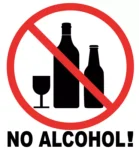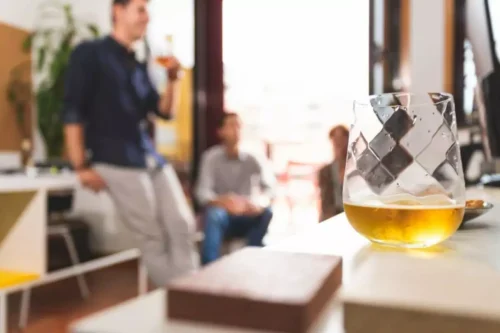Alcohol and Sleep


A diagnosis often brings relief, but it can also come with as many questions as answers. Sunnyside uses a psychology-based approach to help you drink does alcohol help you sleep more mindfully, no matter what your goal is. You’ll get a 100% custom plan, then use daily texts to track your progress and help you stay on target.


A simple dental device could improve the health of millions of Australians. So why isn’t it being offered?
CBTi is recommended as the best starting point for treating insomnia that has lasted more than four weeks (chronic insomnia). Unlike sleeping pills, CBTi helps you overcome the underlying causes of your sleep problems rather than just alleviating the symptoms. The potential for insomnia treatment to influence alcohol-related consequences has significant implications for the prevention and treatment of problematic alcohol use among young adults. This suggests not only that CBTi is effective in reducing insomnia symptoms but that improvements in insomnia may also result in fewer alcohol-related problems. Parasomnias Alcohol increases the amount of SWS in the first third of the night.
Circadian Rhythm Disruptions


When you’ve got a lot of sleep debt, you might reach for an extra cup of coffee or take a long daytime nap. But these behaviors can make it harder to sleep the next night, leading to even more sleep debt. Secondly, alcohol wakes you up in the night, https://ecosoberhouse.com/ making it harder to get enough sleep. When you don’t get enough sleep, you build up sleep debt and this can tank your energy levels. Alcohol has biphasic effects, meaning some of its impacts have two phases, such as stimulating and sedating.
Like what you’re reading? Subscribe to our newsletter and get the same great content delivered straight to your inbox!
Below, we’ll dive into common questions about alcohol and sleep, including how it impacts your sleep, why alcohol makes you sleepy, and how you can get a better night’s sleep after you’ve had a few drinks. Plus, we’ll cover how you can use the RISE app to get a better night’s sleep, whether you’re drinking or not. Though alcohol may help you fall asleep faster, it can disrupt the important REM stage of your sleep cycle, leading to lack of sleep or sleep disorders like insomnia.


The power behind your next best day
- It also causes changes to blood vessels in the nose, leading to greater airway resistance in the nasal passages.
- CBTi reduces symptoms of insomnia among young adults who are actively drinking — even in the absence of direct alcohol intervention.
- Drinking alcohol can affect the quality and length of your sleep, leading to sleep disorders — such as insomnia and sleep apnea — in some.
- The potential for insomnia treatment to influence alcohol-related consequences has significant implications for the prevention and treatment of problematic alcohol use among young adults.
- People with OSA are at least twice as likely to have vehicle accidents related to being sleepy during the day, says Andrew Vakulin from the Adelaide Institute of Sleep Health at Flinders University.
- As we’ve explored throughout this article, the relationship between alcohol and sleep is far more complex than it might initially appear.
Many who abuse alcohol often do it well into the night and oversleep into the next day. In time this may lead to switching up day and night sleeping patterns. Then, as withdrawal from the drug or alcohol occurs there’s a big sleep-wake reversal which then needs to be addressed. Vivid dreams and nightmares — With alcohol in your system you’re more likely to have intense, colorful dreams and nightmares as you sleep patterns ebb and flow. You may or may not remember them, but they can be lucid or give you a feeling that you are half awake and half asleep. Sure, that nightcap, last glass of wine or beer before bed may help you feel sleepy.
If left untreated, chronic sleep apnea can drastically impact your quality of life and lead to serious health concerns, such as weight gain and obesity, hypertension, stroke, memory impairment and heart failure. There are some ways to reduce bloating, but individual results will vary. It’s important to monitor drinking behavior and consider how it affects health, relationships, and work or school. Researchers concluded that consuming water during or directly after a drinking session is ineffective in preventing hangovers.
- Parasomnias Alcohol increases the amount of SWS in the first third of the night.
- If you’ve enjoyed a lovely three-course dinner with friends — washed down with a few glasses of wine — then it’s the combination of a substantial meal and the alcohol that’ll affect your sleep.
- Alcohol is an incredibly popular sleep aid — because it creates an intended outcome.
- Some research shows alcohol can make you feel sleepy soon after consumption and this may be due to eating a meal at the same time.
- If you have sleep apnea, it’s crucial to avoid alcohol, especially close to bedtime.
Alcohol Likely to Keep You Awake, Not Help You Sleep
- (3) Polysomnography results showed that alcohol significantly decreases the time spent in REM sleep and increases slow-wave sleep (SWS) during the first third of the night.
- While alcohol can help you fall asleep, it does not help you stay asleep during the later hours of the night.
- Each stage is necessary for sleep to feel refreshing and for vital processes like learning and memory consolidation to occur.
- You can use RISE to find out how much sleep debt you have and whether drinking alcohol increases it.
Poor sleep can also contribute to a wide range of health problems, according to the NIH, including obesity, high blood pressure and depression. Below, we’ll take a closer look at how alcohol affects the different stages of sleep, as well as how the quantity and timing of alcohol can influence sleep quality. With extended use of alcohol over time, there can be long-term concerns, too.


On the contrary, as alcohol passes through the body, it exerts a number of biochemical effects that tend to lead to poorer sleep. Understanding the effects of alcohol on sleep is the first step toward preventing alcohol-related sleep problems. But the more someone drinks, the more significant the impact, said Meadows, pointing to a 2018 study in the journal JMIR Mental Health. Heavy drinking can make the sleep- and circadian rhythm-disrupting effects of alcohol worse. But even a regular, moderate routine of two to three drinks a day is enough to create sleep and performance problems for many people.
